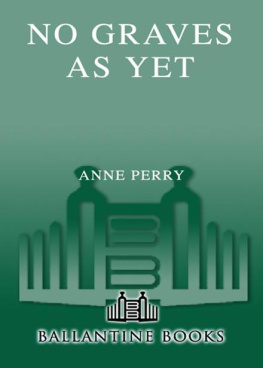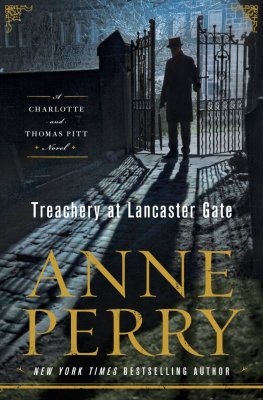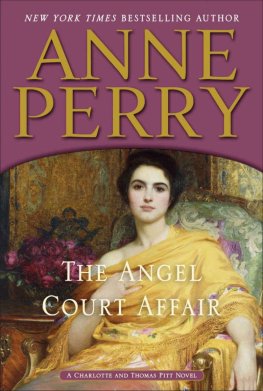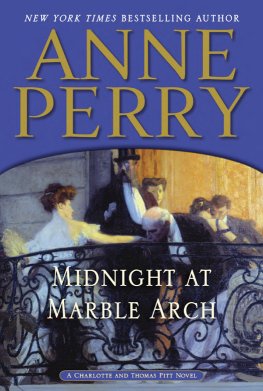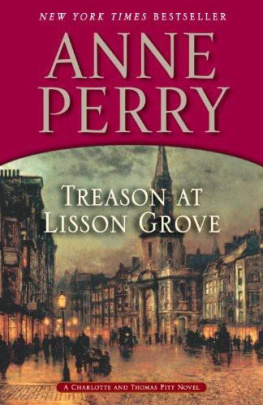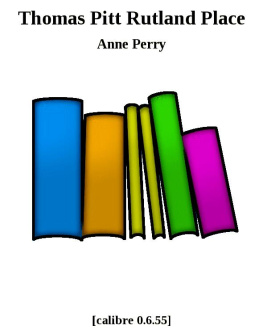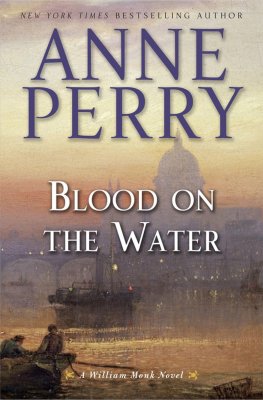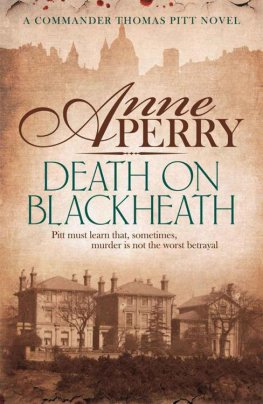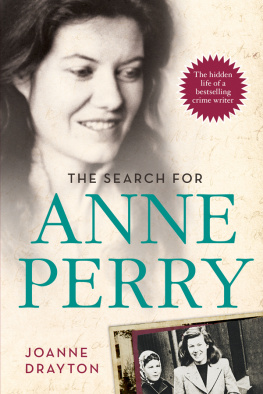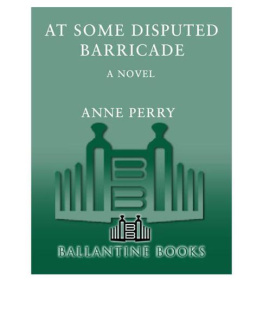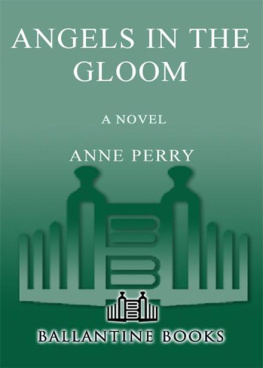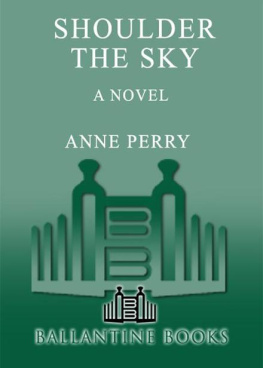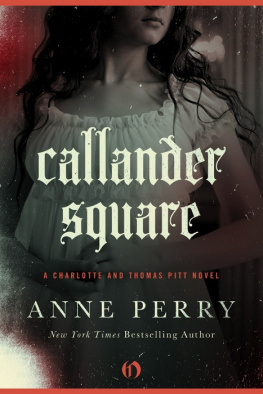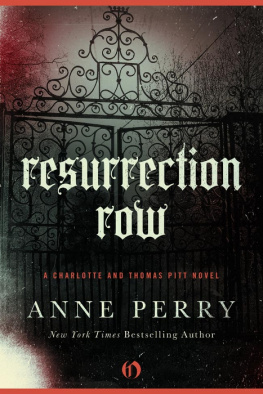Anne Perry - No Graves As Yet: A Novel of World War I
Here you can read online Anne Perry - No Graves As Yet: A Novel of World War I full text of the book (entire story) in english for free. Download pdf and epub, get meaning, cover and reviews about this ebook. genre: Detective and thriller. Description of the work, (preface) as well as reviews are available. Best literature library LitArk.com created for fans of good reading and offers a wide selection of genres:
Romance novel
Science fiction
Adventure
Detective
Science
History
Home and family
Prose
Art
Politics
Computer
Non-fiction
Religion
Business
Children
Humor
Choose a favorite category and find really read worthwhile books. Enjoy immersion in the world of imagination, feel the emotions of the characters or learn something new for yourself, make an fascinating discovery.
- Book:No Graves As Yet: A Novel of World War I
- Author:
- Genre:
- Rating:3 / 5
- Favourites:Add to favourites
- Your mark:
- 60
- 1
- 2
- 3
- 4
- 5
No Graves As Yet: A Novel of World War I: summary, description and annotation
We offer to read an annotation, description, summary or preface (depends on what the author of the book "No Graves As Yet: A Novel of World War I" wrote himself). If you haven't found the necessary information about the book — write in the comments, we will try to find it.
No Graves As Yet: A Novel of World War I — read online for free the complete book (whole text) full work
Below is the text of the book, divided by pages. System saving the place of the last page read, allows you to conveniently read the book "No Graves As Yet: A Novel of World War I" online for free, without having to search again every time where you left off. Put a bookmark, and you can go to the page where you finished reading at any time.
Font size:
Interval:
Bookmark:
No Graves As Yet
A Novel of World War I
ANNE PERRY
Ballantine Books New York
TABLE OF CONTENTS
Dedicated to
my grandfather,
Captain Joseph Reavley,
who served as chaplain in the trenches
during the Great War
In stately conclave met,
Alas, alas for England
They have no graves as yet. G. K. Chesterton
CHAPTER
ONE
It was a golden afternoon in late June, a perfect day for cricket. The sun burned in a cloudless sky, and the breeze was barely sufficient to stir the slender, pale skirts of the women as they stood on the grass at Fenners Field, parasols in hand. The men, in white flannels, were relaxed and smiling.
St. Johns were batting and Gonville and Caius were fielding. The bowler pounded up to the crease and sent the ball down fast, but a bit short and wide. Elwyn Allard leaned forward, and with an elegant cover drive, dispatched the ball to the boundary for four runs.
Joseph Reavley joined in the applause. Elwyn was one of his students, rather more graceful with the bat than with the pen. He had little of the scholastic brilliance of his brother, Sebastian, but he had a manner that was easy to like, and a sense of honor that drove him like a spur.
St. Johns still had four more batsmen to play, young men from all over England who had come to Cambridge and, for one reason or another, remained at college through the long summer vacation.
Elwyn hit a modest two. The heat was stirred by a faint breath of wind from across the fenlands with their dykes and marshes, flat under the vast skies stretching eastward to the sea. It was old land, quiet, cut by secret waterways, Saxon churches marking each village. It had been the last stronghold of resistance against the Norman invasion eight and a half centuries ago.
On the field one of the boys just missed a catch. There was a gasp and then a letting out of breath. All this mattered. Such things could win or lose a match, and they would be playing against Oxford again soon. To be beaten would be catastrophic.
Across the town behind them, the clock on the north tower at Trinity struck three, each chime on the large A-flat bell, then followed the instant after on the smaller E-flat. Joseph thought how out of place it seemed, to think of time on an eternal afternoon like this. A few feet away, Harry Beecher caught his eye and smiled. Beecher had been a Trinity man in his own years as a student, and it was a long-standing joke that the Trinity clock struck once for itself and once for St. Johns.
A cheer went up as the ball hit the stumps and Elwyn was bowled out with a very respectable score of eighty-three. He walked off with a little wave of acknowledgment and was replaced at the crease by Lucian Foubister, who was a little too bony, but Joseph knew his awkwardness was deceiving. He was more tenacious than many gave him credit for, and he had flashes of extraordinary grace.
Play resumed with the sharp crack of a strike and the momentary cheers under the burning blue of the sky.
Aidan Thyer, master of St. Johns, stood motionless a few yards from Joseph, his hair flaxen in the sun, his thoughts apparently far away. His wife Connie, standing next to him, glanced across and gave a little shrug. Her dress was white broderie anglaise, falling loosely in a flare below the hip, and the fashionable slender skirt reached to the ground. She looked as elegant and feminine as a spray of daisies, even though it was the hottest summer in England for years.
At the far end of the pitch Foubister struck an awkward shot, elbows in all the wrong places, and sent the ball right to the boundary. There was a shout of approval, and everyone clapped.
Joseph was aware of a movement somewhere behind him and half turned, expecting a grounds official, perhaps to say it was time for lemonade and cucumber sandwiches. But it was his own brother, Matthew, who was walking toward him, his shoulders tight, no grace in his movement. He was wearing a light gray city suit, as if he had newly arrived from London.
Joseph started across the green, anxiety rising quickly. Why was his brother here in Cambridge, interrupting a match on a Sunday afternoon?
Matthew! What is it? he said as he reached him.
Matthew stopped. His face was so pale it seemed almost bloodless. He was twenty-eight, seven years the younger, broader-shouldered, and fair where Joseph was dark. He was steadying himself with difficulty, and he gulped before he found his voice. Its... He cleared his throat. There was a kind of desperation in his eyes. Its Mother and Father, he said hoarsely. Theres been an accident.
Joseph refused to grasp what he had said. An accident?
Matthew nodded, struggling to govern his ragged breathing. In the car. They are both... dead.
For a moment the words had no meaning for Joseph. Instantly his fathers face came to his mind, lean and gentle, blue eyes steady. It was impossible that he could be dead.
The car went off the road, Matthew was saying. Just before the Hauxton Mill Bridge. His voice sounded strange and far away.
Behind Joseph they were still playing cricket. He heard the sound of the ball and another burst of applause.
Joseph... Matthews hand was on his arm, the grip tight.
Joseph nodded and tried to speak, but his throat was dry.
Im sorry, Matthew said quietly. I wish I hadnt had to tell you like this. I...
Its all right, Matthew. Im... He changed his mind, still trying to grasp the reality. The Hauxton Road? Where were they going?
Matthews fingers tightened on his arm. They began to walk slowly, close together, over the sun-baked grass. There was a curious dizziness in the heat. The sweat trickled down Josephs skin, and inside he was cold.
Matthew stopped again.
Father telephoned me late yesterday evening, he replied huskily, as if the words were almost unbearable for him. He said someone had given him a document outlining a conspiracy so hideous it would change the world we knowthat it would ruin England and everything we stand for. Forever. He sounded defiant now, the muscles of his neck and jaw clenched as if he barely had mastery of himself.
Josephs mind whirled. What should he do? The words hardly made sense. John Reavley had been a member of Parliament until 1912, two years ago. He had resigned for reasons he had not discussed, but he had never lost his interest in political affairs, nor his care for honesty in government. Perhaps he had simply been ready to spend more time reading, indulging his love of philosophy, poking around in antique and secondhand shops looking for a bargain. More often he was just talking with people, listening to stories, swapping eccentric jokes, and adding to his collection of limericks.
A conspiracy to ruin England and everything we stand for? Joseph repeated incredulously.
No, Matthew corrected him with precision. A conspiracy that would ruin it. That was not the main purpose, simply a side effect.
What conspiracy? By whom? Joseph demanded.
Matthews skin was so white it was almost gray. I dont know. He was bringing it to me... today.
Joseph started to ask why, and then stopped. The answer was the one thing that made sense. Suddenly at least two facts cohered. John Reavley had wanted Joseph to study medicine, and when his firstborn son had left it for the church, he had then wanted Matthew to become a doctor. But Matthew had read modern history and languages here at Cambridge, and then he joined the Secret Intelligence Service. If there was such a plot, John would understandably have notified his younger son. Not his elder.
Joseph swallowed, the air catching in his throat. I see.
Matthews grip eased on him slightly. He had known the news longer and had more time to grasp its truth. He was searching Josephs face with anxiety, evidently trying to formulate something to say to help him through the pain.
Next pageFont size:
Interval:
Bookmark:
Similar books «No Graves As Yet: A Novel of World War I»
Look at similar books to No Graves As Yet: A Novel of World War I. We have selected literature similar in name and meaning in the hope of providing readers with more options to find new, interesting, not yet read works.
Discussion, reviews of the book No Graves As Yet: A Novel of World War I and just readers' own opinions. Leave your comments, write what you think about the work, its meaning or the main characters. Specify what exactly you liked and what you didn't like, and why you think so.

